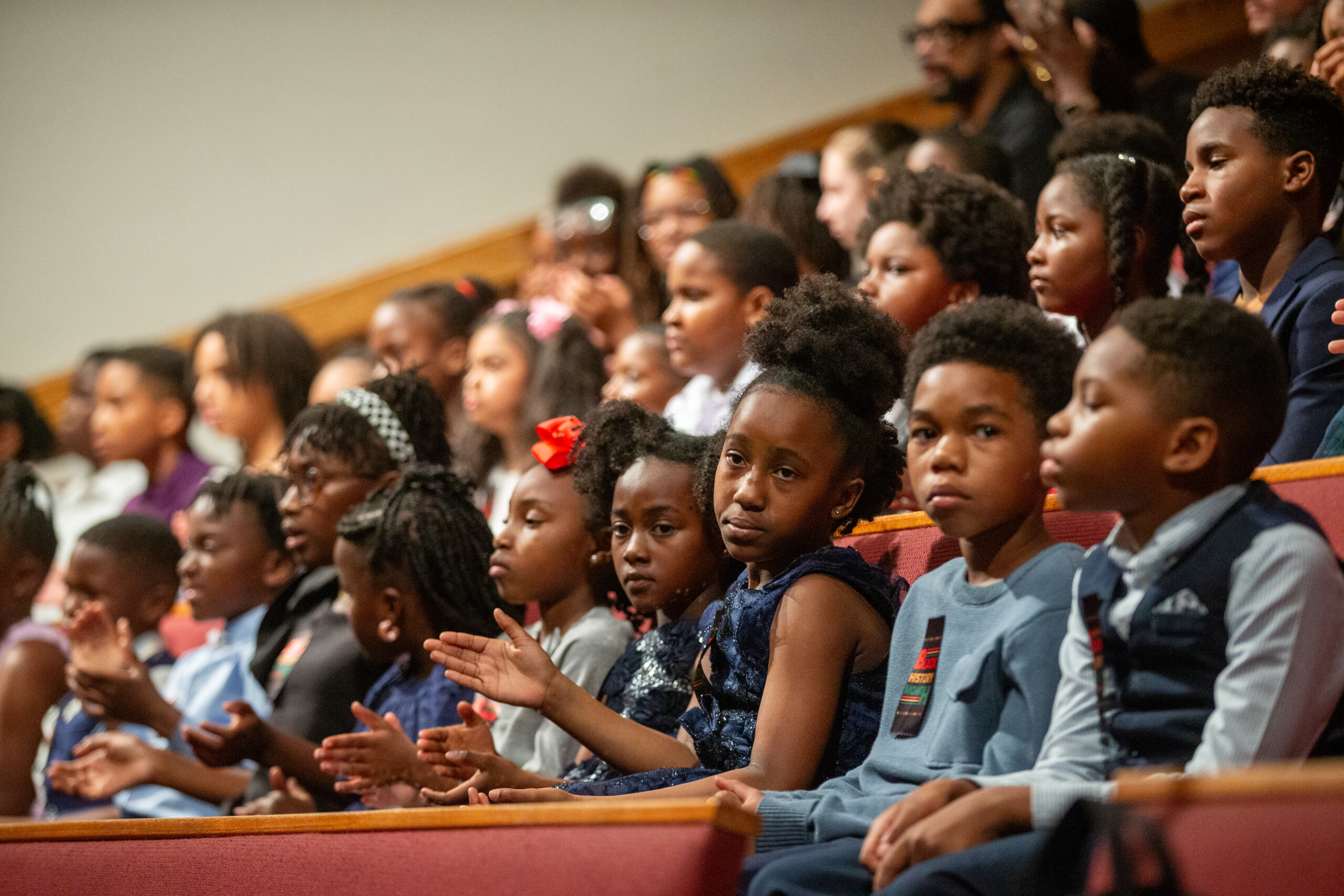Jacksonville’s most famous song left the voices of Stanton High School students 125 years ago this week, lived in their hearts and ultimately reverberated across the world.
How far and how wide Lift Every Voice and Sing resonated was a surprise to its creator. James Weldon Johnson wrote in his 1934 autobiography that “the schoolchildren of Jacksonville kept singing the song,” after he and his brother John Rosamond Johnson moved on to other ventures.
This week, schoolchildren in Jacksonville celebrated the 125th anniversary of Lift Every Voice and Sing.
The song was first performed on Feb. 12, 1900, as part of a celebration of The Great Emancipator’s birth.
Wednesday night, civil rights activists, elected officials, community leaders and everyday Jaxsons were all visibly moved inside The Bethel Church as the Lift Every Voice and Sing Children’s Choir featuring the Ritz Voices, sang all three verses.
Wednesday’s performance is part of five days of events and programming created to celebrate the legacy of the Johnson brothers and provide information about influential people and episodes in Black history.
Meanwhile, on Thursday morning, students from Becoming Collegiate Academy, an HBCU-themed charter school in Brentwood, performed the song as part of a Black History Month celebration at City Hall.
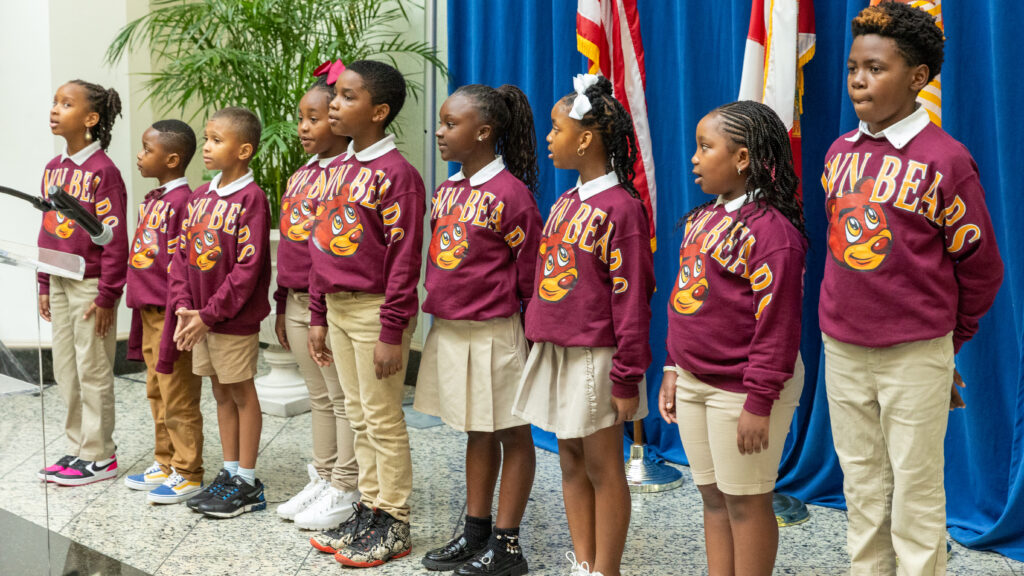
James Weldon Johnson initially wanted to produce a poem in celebration of Abraham Lincoln, but he was moved to write a song. The first line came easy to him: Lift ev’ry voice and sing.
The other lines took time. In his autobiography, Johnson wrote that he had tears in his eyes once he finished the lyrics.
Sharon Coon had tears in her eyes this week. As about 125 children stood inside the choir stand of the venerable church in LaVilla, the grande dame stood next to Jacksonville’s mayor with her gratitude evident.
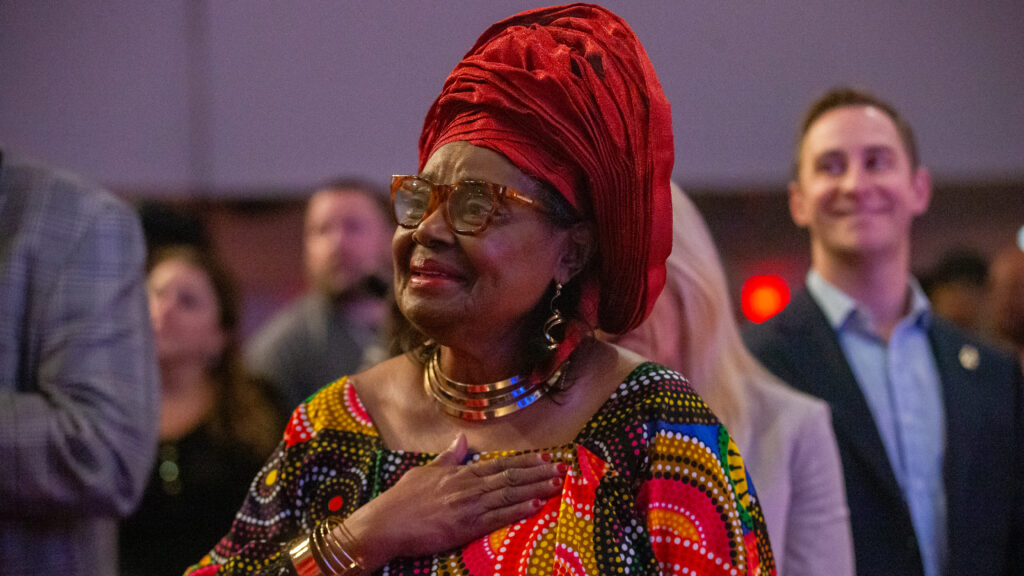
The God of her weary years was also wellspring for Wednesday’s public tears.
“We have done what we are supposed to do,” Coon said in her closing remarks. “I know God is pleased with what happened here today.”
For Tendaji Vereen, it was her first public performance. She is 6. She stood in the front row, watching and following every instruction Debroah McDuffie gave.
“(It was) good because we all got to sing,” Tendaji said.
Rufus E.Jones Jr., president of the James Weldon Johnson Foundation, is working to have the song become recognized as the national hymn. Rep. James Clyburn, a South Carolina Democrat, introduced a bill in 2022 that would have done the same, but it never made it out of committee.
“(Johnson) called it a national hymn,” Jones said. “He was prescient enough to know an anthem could be a roadblock our cause for consternation today.”
Jones says the time is right to advocate that Congress honor Lift Every Voice and Sing as a national hymn, similar to the way the Star-Spangled Banner was named the national anthem in 1931 and the1987 designation of jazz as a national treasure.
Janae Brown is a 16-year-old Southside resident who listened to the celebratory performance of Lift Every Voice and Sing and left motivated to foster unity in her community.
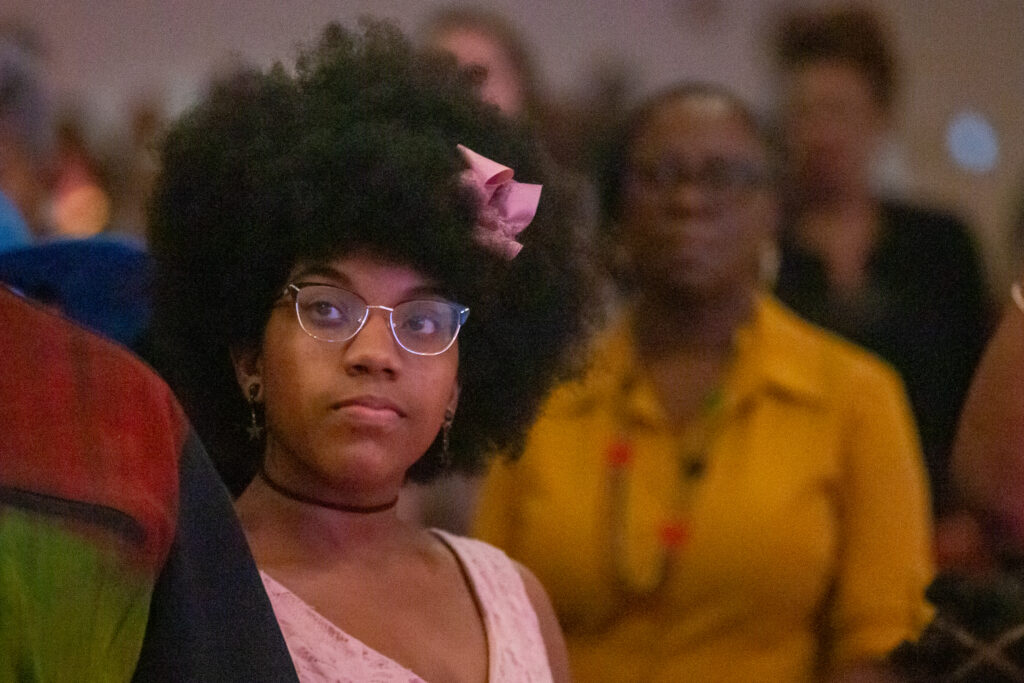
“I really found it empowering when (Jones) spoke of it as a national hymn,” Brown said. “”Now-a-days, everything is so divided. But, the song brings people together. It’s not lift one voice. It’s lift every voice.”
Lift Every Voice and Sing is colloquially called the Black National Anthem. A difference between the song of the Johnson brothers, and the poem that Francis Scott Key wrote, may be found in the third stanza.
While Key wrote about war as well as the fate of the hireling and slave, Johnson wrote about being led to the light and remaining true to God and our native land.
Michaela Riley-Bell and Isaiah Craig are Douglas Anderson School of the Arts classmates who were among the scores of Duval County Public Schools students who listened to presentations on topics ranging from the Poor People’s Campaign of 1968, the legacy of Ax Handle Saturday in 1960 and the impact of the Fair Housing Act of 1968 as part of the week of festivities and events.
“It’s important to pass down Lift Every Voice and Sing to future generations so future generations are aware of culture and why we are here today,” Riley-Bell said. “Lift Every Voice and Sing was part of who we are. That’s why we sing it at the start of every show.”
On Friday and Saturday evening, Riley-Bell and Craig are among the scores of Douglas Anderson students who will participate in Black Arts A.L.I.V.E. Presents: Black Resistance, a two performance presentation of music, art and entertainment that will led by students. Multiple arrangements of Lift Every Voice and Sing will be performed before both Friday’s and Saturday’s events inside the Dubow Theatre on campus.
Duval County School Board member Darryl Willie, during remarks made Wednesday night at The Bethel Church, reminded the audience that people cannot be passive consumers of historical information. They must fight to learn more and share that knowledge with others. Willie noted that is what Johnson did during his tenure as principal at the Stanton school.
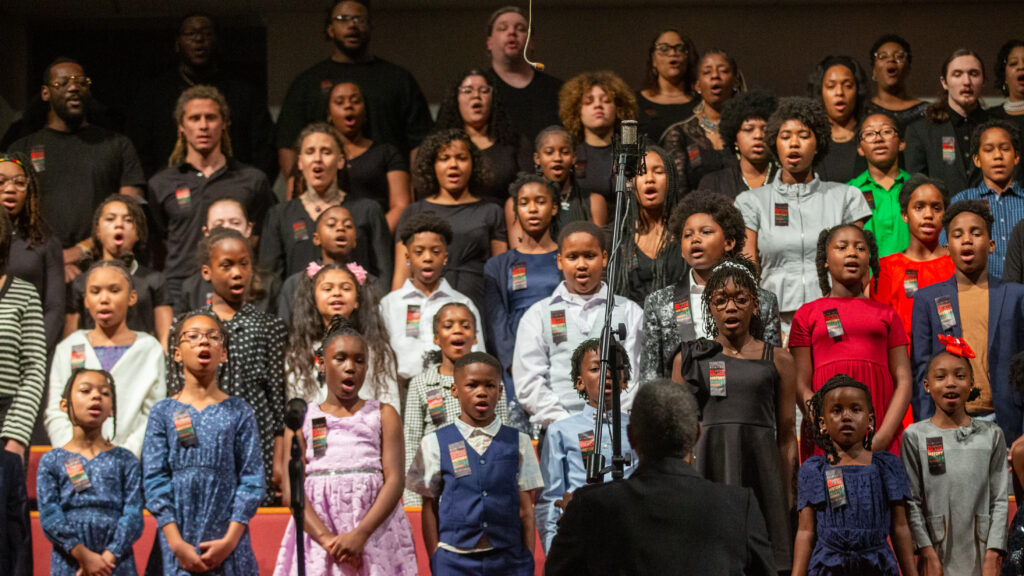
Stanton became Florida’s first high school for Black students during Johnson’s time on the faculty.
James Weldon Johnson was many things during his life: a poet, attorney, newspaper editor and more. During Wednesday’s celebration at The Bethel Church and Thursday morning’s Black History Month observance at City Hall, Johnson’s role as an educator was highlighted above all else.
Education, as Jacksonville Mayor Donna Deegan said Thursday morning, is a great equalizer.
“Their contributions continue to inspire generations,” Deegan said of the Johnson brothers on Thursday. “Their legacy reminds us that words have power and music can unify and uplift for generations. … Like many cities nationwide, Jacksonville has a long and complex history with race. While we honor the progress we have made, we must also acknowledge the systemic barriers that continue to create disparities in education, economic opportunity, health care and the justice system.”
Whether it was Deegan, Edward Waters University President A. Zachary Faison, Willie or Coon, they all noted the best way to enhance the legacy of the song is to ensure future generations are not only informed, but educated.
It’s a way for Jacksonville to emerge from the gloomy past, to stand at last in a place where the white gleam of a bright star is cast.



